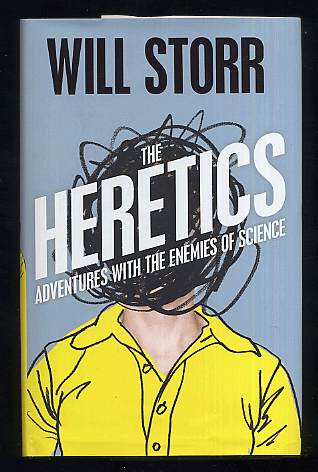Doctor Who and the Animated Adventures of the Cybermen! 'The Moonbase' comes to DVD sans two episodes; does that lessen our enjoyment of it?
The BBC has finished releasing all the complete Doctor Who
stories on DVD, and now it seems to be starting to release all of those with
50% or more remaining, closing up the gaps with animated reconstructions (more
on those later…). They have so far stuck
with ‘Monster’ stories, and that now includes three Cyber-stories – ‘The
Invasion’, ‘The Tenth Planet’ and now…
‘The Moonbase’. One
of those Doctor Who stories with quite a strong reputation built up over the
years, partly for being one of the first stories to be novelised and partly
because it’s the first one to feature the Cybermen as we recognise them
now. And partly because, along with many
other Doctor Who stories, it’s been half-missing for the best part of 50 years. To look at why a story being missing can
increase its reputation, it might be best to look at why the stories went
missing in the first place.
 You may know the story; you may not. In the 60s until at least the late 70s, the
BBC had a policy of junking its own programmes.
Not just Doctor Who but an awful lot of its own drama, comedy and light
entertainment. This seems bonkers from a
21st century view. Why spend
money producing TV shows, show them once and then delete them completely?
You may know the story; you may not. In the 60s until at least the late 70s, the
BBC had a policy of junking its own programmes.
Not just Doctor Who but an awful lot of its own drama, comedy and light
entertainment. This seems bonkers from a
21st century view. Why spend
money producing TV shows, show them once and then delete them completely?
There were a few reasons that at the time probably made
economic sense. In an era where repeats
were rare and home video a non-existent concept, it was thought that there was
no financial value to keeping the tapes.
Not only were they expensive to store, but they could be re-used (ie
taped over). So lots of episodes of lots
of different things were lost. Comedy
took a big hit losing most of Peter Cook and Dudley Moore’s work for ever. Cook even tried to buy the tapes from the BBC
but they refused his offer. All of Monty
Python nearly went the same way, only Terry Jones did manage to buy them
somehow and now they presumably make a fortune for them all.
Doctor Who did alright, relatively speaking. Audio copies of all the shows survived, and
because they had been sold overseas a lot of foreign stations had copies. Just last Autumn two complete stories (more
or less) were recovered to much fanfare, and there are hopes to find more. But there are still over 90 episodes missing,
and it’s unlikely they’ll all turn up again.
Anyway, home video came along. From the 80s onwards, fans gradually became
familiar and then over-familiar with the surviving material through repeats and
video sales. And it is at this point of
course that the missing episodes from the 60s (including ‘The Moonbase’) built
up a bit of a mystique. Without there
being evidence to the contrary it was possible to imagine certain stories as
being amazing and fantastic. One story,
‘The Tomb Of The Cybermen’ had a reputation for being amazing and fantastic. Then, it was recovered in 1992 in Hong Kong and turned out to be… Well, not terrible but not knock-out stuff
either. But compared to its reputation
it was always going to look appalling.
So all these stories with some (or all) of their episodes
missing – how do people know them? Fandom,
because it is mad and creative, has made various re-constructions of the
missing episodes using off-screen photos and the off-air audio recordings. The visual only elements tend either to be
simple subtitles or more ambitious homemade animation or model-work. The quality of these amateur reconstructions
are variable to say the least. Some are
quite effective given the circumstances; some… have their hearts in the right
place. Lots of them are on YouTube if
you’re curious – the good, the bad and the very poorly realised.
You would think the BBC would put a halt to this by
releasing its own, official reconstructions

The animated Patrick Troughton having a bit of an old think
rather than letting these amateur
ones proliferate. And it has. Sort of.
In 2006 ‘The Invasion’ was released, with its two missing episodes
animated. This was a divisive idea but
one that has stuck. Some diehards didn’t
like the idea of cartoons replacing the actors, even if the only other option
was static photographs, because they were a reimagining rather than an accurate
reproduction of what had gone before.
Other people saw it as an imaginative and clever solution to the simple
problem that watching a subtitled slideshow of photographs is quite boring and
unlikely to reach as large a portion of the DVD-buying public.
And so, after a massive detour, we gradually get back to
‘The Moonbase’ on DVD. A story which is,
as I said, pretty highly regarded (although since ‘Tomb Of The Cybermen’ fans
have become a lot more cynical about reputations). Its first and third episodes are missing, and
so are animated. The story is pretty
tedious and at points ridiculous. The
way that the Cybermen have invaded the titular Moonbase is by making a hole in
the side of the storeroom like big silver mice; and when it looks like all the
oxygen is about to disappear because of a hole in the dome, the solution is to
put a tea tray over it. Similarly, the
characters aren’t more than cardboard cutouts with funny accents. During the whole thing the Frenchman wears a
little necktie thing which makes him look like he’s left his beret somewhere
else throughout. But this isn’t a story
which is interested in having a clever plot or characters with much more signs
of emotion than the villains. The story
exists as an excuse to show lots of Cybermen on the moon.
 You may know the story; you may not. In the 60s until at least the late 70s, the
BBC had a policy of junking its own programmes.
Not just Doctor Who but an awful lot of its own drama, comedy and light
entertainment. This seems bonkers from a
21st century view. Why spend
money producing TV shows, show them once and then delete them completely?
You may know the story; you may not. In the 60s until at least the late 70s, the
BBC had a policy of junking its own programmes.
Not just Doctor Who but an awful lot of its own drama, comedy and light
entertainment. This seems bonkers from a
21st century view. Why spend
money producing TV shows, show them once and then delete them completely?  |
| The animated Patrick Troughton having a bit of an old think |
 |
| Lots of Cybermen on the moon. |
So on the plus side: the Cybermen themselves are very
effective when looking at their heads; the effectiveness of the costume design
decreases the further you look down until finally you see their lace-up
moonboots which are slightly less impressive.
They do quite often manage to be chilling though, and the voice effect
is excellent - a metallic, electronic drone (in their previous appearance they
sounded like an electronic Peter Sellers doing Bluebottle). And Patrick Troughton is magnetic as ever,
about the only actor here who is. Even
when he’s hovering on the edge of things your eye is drawn towards him, because
he’s an actor who is acting even when he is standing still. Which means that a burst of energy from the
Doctor seems like a genuine release.
This was early days for him in the character, but he seems fully in
command of the role.
And the animated episodes?
The animation does the job. The
animators are obviously savvy enough to know that this isn’t a chance to do
lots of exciting things, animation-wise or they won’t complement the existing
episodes. It must be tempting to improve
on the past, but they can’t afford to overshadow the real thing. There are some rather nice touches – you can
see very tiny bubbles floating in the ‘handles’ of one of the Cybermen, and
it’s nice how the table wobbles in the animated reprise of episode two’s
clffhanger. It’s understated but has its
own character.
Doctor Who fans are funny creatures, and love to complain
about what they profess to love. There
are a lot of different types of Doctor Who out there though, and the era ‘The
Moonbase’ one comes from – with lots of monsters and besieged bases – isn’t my
favourite by a long way. Ironically, the
animation factor of this release probably added to my enjoyment of the story
for the novelty value so - I probably liked it better than I would have done
with the complete episodes. Make of that
what you will.
One final thought – if they find the real episodes of all
these ones that have now been animated…
Do we get a refund?















